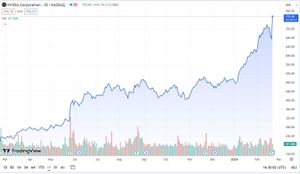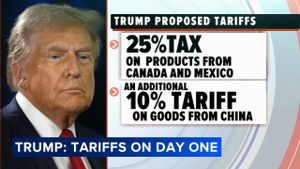Israeli Prime Minister Benjamin Netanyahu embarked on his Washington visit with lofty aspirations, intending to solidify the bond between Israel and the United States. This meeting with President Donald Trump, only weeks after Trump's inauguration, symbolizes the revitalization of U.S.-Israel relations, previously strained under the Biden administration. Netanyahu, expressing optimism about their discussions, highlighted the significance of the shared history and friendship between their nations, declaring, "This connection has already yielded great achievements, including the historic Abraham Accords."
Departing on February 2, 2023, Netanyahu referred to the importance of this visit, emphasizing its potential to "strengthen Israel’s security, expand the circle of peace and achieve a remarkable era of peace through strength." This remark resonates deeply, considering the backdrop of the 15-month conflict ignited by the October 2023 Hamas assault on Israel. Coming to Washington, Netanyahu's agenda revolves around not only securing Israeli interests but also confronting significant threats posed by Iranian influence and the actions of Hamas.
Upon arriving, Netanyahu is set to be the first foreign leader to meet with Trump, underscoring the ever-looming importance of the U.S.-Israel alliance at this juncture. The discussions will reportedly touch on various issues, including the fate of hostages taken by Hamas, strategies against Iranian aggression, and updates on the deadly situation in Gaza. With negotiations for the second phase of the Kuwait truce expected to begin, Netanyahu intends to pursue the return of all hostages, stating, "Victory over Hamas... is one of the key areas of focus for this visit."
Netanyahu reiterated, "The decisions we made in the war have already changed the face of the Middle East," hinting at the transformative potential of their policies. Among actionable goals, the establishment of second-phase agreements of the Gaza ceasefire, targeted hostages' release, and addressing the Iranian nuclear threat are among the most pressing matters on the table.
An additional layer of complexity arises with the socio-political backdrop. Netanyahu faces mounting pressure from his right-wing government to resume military efforts against Hamas after the initial ceasefire phase wraps up. This push from hardline ministers includes demands for military action against Palestinian areas, which could threaten the fragile coalition he leads. Bezalel Smotrich from the far-right echoed sentiments of urgency, stating, "A great deal is at stake – complete victory in Gaza, the destruction of Hamas and the return of all our hostages, strengthening our security on all borders."
On the larger geopolitical canvas, the potential for formal ties between Israel and Saudi Arabia remains tantalizing. Netanyahu's government views normalization with Gulf states as pivotal, particularly following previous normalization agreements brokered during Trump's tenure, officially reignited as the Abraham Accords. Trump has clearly expressed difficulties with the prior administration's stance; the ensuing discussions might lead to new strategies to engage Saudi Arabia. Yet, any official dealings are anticipated to hinge on significant developments concerning Palestinian interests—a sticky wicket for Netanyahu.
This meeting promises more than just bilateral gain; it serves as United States' strategic recalibration toward Middle East affairs. By cooperating closely with Israel during this tumultuous time, the U.S. aims to present as a reliable ally amid rising tensions. This will not only solidify Netanyahu's position but also reshape how future relations evolve. Officials on both sides acknowledge the necessity of establishing "no daylight" between their policy implementations to mitigate destabilizing factors within the region.
While uncertainties shroud the prospective outcomes of Netanyahu's Washington trip, the emphasis remains on cooperation and resolving existing issues, particularly those concerning hostages, Iranian influence, and potential new alliances. Trump's previous assertiveness on Middle Eastern issues might spur different outcomes compared to the previous administration. Netanyahu appears steadfast on leveraging every opportunity to bolster Israel’s standing on the international stage.
Whether Netanyahu manages to glean favorable commitments remains to be seen, but one thing is clear—this visit marks both hope and tension. It signals intent and urgency for both leaders as they face complex and visceral realities unraveling within their regions. Indeed, as Netanyahu himself aptly put it, "The strength of our soldiers, our citizens, Israel and the alliance between Israel and the United States" could usher not only strategic shifts but outline pathways toward enduring peace amid uncertainty.



